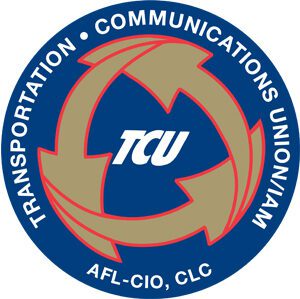Washington, DC, August 7 — On August 5, 2020, 12 rail unions whose members and their families are covered by the NRC/UTU Plan and the Railroad Employees National Health and Welfare Plan, filed suit against the nation’s Class I railroad carriers in the United States District Court for the District of Columbia.
The suit asks the court to force the carriers to bargain in good faith with the unions over mandatory subjects of bargaining. The involved issues have been the subject of collective bargaining for decades and are in fact part of the carriers’ bargaining notices served on November 1, 2019 pursuant to Section 6 of the Railway Labor Act (RLA). At issue are carrier attempts to restrict access to certain medications and to forcibly reconfigure health care networks.
The unions are: the American Train Dispatchers Association; the Brotherhood of Locomotive Engineers and Trainmen; the Brotherhood of Maintenance of Way Employes; the Brotherhood of Railroad Signalmen; the International Association of Machinists and Aerospace Workers; the International Association of Sheet Metal, Air, Rail and Transportation Workers, Mechanical Division; the International Association of Sheet Metal, Air, Rail and Transportation Workers, Transportation Division; the International Brotherhood of Boilermakers; the International Brotherhood of Electrical Workers; the National Conference of Fireman & Oilers District, Local 32BJ, SEIU; the Transportation Communications Union/IAM; and the Transport Workers Union.
The rail carriers are: BNSF Railway Company; Kansas City Southern Railway Company; CSX Transportation; Grand Trunk Western Railroad Company; Norfolk Southern Railway Company; Soo Line Railway Company; and Union Pacific Railway Company. Also named in the suit is the National Railway Labor Conference (NRLC), whose National Carriers’ Conference Committee (NCCC) is the designated bargaining agent of the railroads.
The unions have asked the court to:
- issue a declaratory judgment that the carriers are obligated to bargain in good faith with the unions on proposed health and welfare changes in accordance with the collective bargaining procedures outlined under the RLA;
- issue a declaratory judgment that health and welfare plan design changes are a mandatory subject of collective bargaining pursuant to the RLA;
- issue a declaratory judgment that the NRLC may not force plan design changes upon its employees without the agreement of the unions, to be achieved through the mandatory dispute resolution process of the RLA;
- issue an order enjoining the NRLC from trying to force these health and welfare changes via arbitration rather than addressing them in collective bargaining; and
- issue an order requiring the NRLC to engage in good faith negotiations with the unions over their proposed health and welfare changes through the RLA’s major dispute resolution procedures.
The chief executives of the 12 unions issued the following statement concerning the lawsuit:
The railroads’ attempt to evade their legal obligation to bargain on these issues of great importance to our members has left us with no choice but to enforce these legal rights in court. If implemented without successfully negotiated application, the carriers’ proposals could be extremely harmful to our members and their families. Even more outrageous, the process they are attempting to impose would allow rail carriers to reduce employees’ access to medicines and doctors in the middle of a pandemic. When they should be rewarding the contributions of their essential employees with hazard pay, the rail carriers instead attempt to reduce medical benefits when they are needed most. Events like these are why railroad managers were labeled as “Robber Barons” over a century ago; their actions today are proof positive that the label still applies. Unfortunately for working class Americans, this is the way of many corporations across the country in Donald Trump’s America; essential employees are treated as expendable employees. We will not stand idly by while management attacks the core legal rights our members enjoy.
TCU President Artie Maratea said, “This is unacceptable behavior by the carriers especially during a health crisis. We will stand up for our members rights and negotiated benefits, the carriers will know that we will not back down.”
Updates will be provided as developments warrant.
Click here to read the full complaint filed by the unions.

